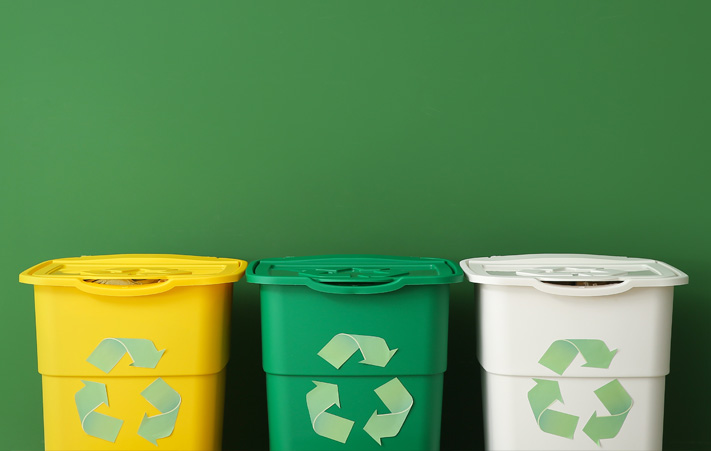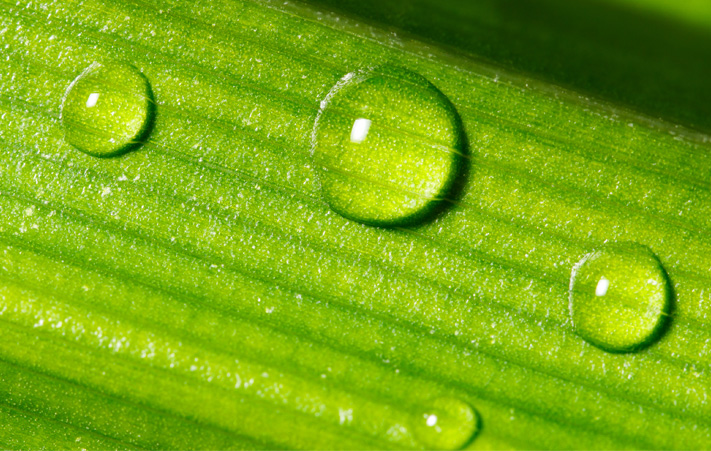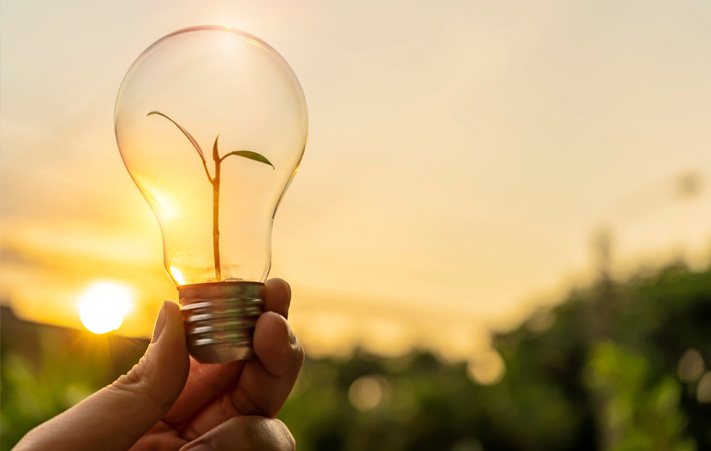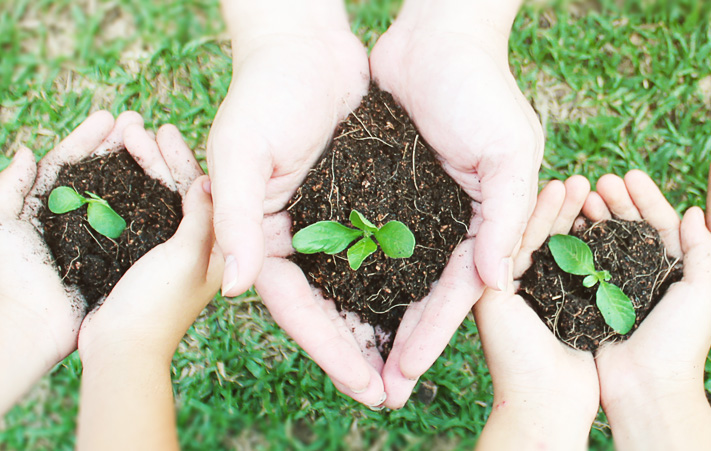“I am pleased to share our first Sustainability Report. Together, we can make a meaningful difference and build a more sustainable future for generations to come.”
—Jeff Gentine, President & CEO
Sustainability Guiding Principles
As sustainability and ESG becomes ever more prevalent, we recognize our role in a more sustainable future for all. In accordance with our mission, vision and values, we also strive for excellent sustainability performance through our Sustainability Guiding Principles:
- Adhere to all applicable environmental laws, regulations and standards at the federal, state and local levels and proactively seek ways to exceed these requirements.
- Manage natural resources responsibly by implementing water-saving technologies, reducing waste and preventing pollution not only to protect the environment but public health and safety.
- Monitor and minimize greenhouse gas emissions at our facilities by implementing new technologies and practices that reduce our overall energy consumption while simultaneously seeking out opportunities to transition toward more renewable energy sources.
- Source cheese, packaging and other materials from suppliers who adhere to sustainable practices, prioritizing local and environmentally responsible sources whenever possible.
- Promote a culture of ownership by educating and training our people to work in an environmentally responsible and socially equitable manner by holding ourselves and our colleagues to high standards.
- Maintain board level oversight of environmental risks, performance and outlook, set achievable sustainability goals and integrate sustainability considerations into strategic business decisions.
Awards and Recognition
Masters Gallery has a long history of outstanding sustainability performance. The following awards and recognitions can be accredited to the hard work of our Green Team who prioritizes sustainability performance and stewardship at our facilities through process improvements, implementing new technologies and updating our facilities.
- five-time recipient of the Wisconsin Business Friends of the Environment Award in the Sustainability and Environmental Stewardship categories
- long-term member of the Wisconsin Sustainable Business Council and a participant of the Green Master Program since 2016
- awarded the Plymouth Utilities, Energy Efficient Improvement Award after several improvements to our facility, 2011–2014
- recognized in 2015 with The Wasmer Company’s Environmental Stewardship Award
- received the Deloitte Wisconsin 75 Distinguished Performer in Sustainability Award in 2017
Employee Engagement
Our employees ensure responsible management of waste and spearhead recycling efforts every day at our facilities. Additionally, the Green Team provides recycling opportunities throughout the year to dispose of hard-to-recycle items that would otherwise end in landfills or our environments. We partner with other employee and community partners to recycle holiday lights, shoes, jeans, household electronics, batteries, pop tabs and more. Masters Gallery also hosts several events in the community to educate employees on sustainability related topics, including Focus on Energy lighting events, employee paper shredding, Earth Day clean-up events and other volunteer opportunities through our MGF Gives Back program.
We strive to implement best practices in waste management. Since 2012, we have dedicated resources to ensure a more sustainable waste stream and have partnered with Quincy Recycling as a way of investing in a more circular economy. Most recently, both our Plymouth and Oostburg facilities had an 84% landfill diversion rate! We strive to be a zero-waste facility in the future.
By implementing data management software and databases, we have been able to reduce our overall paper consumption by over 60% since 2016.
We continue to prioritize sustainable waste management, not only through recycling efforts, but by analyzing our overall consumption habits. Reducing consumer waste and increasing the recyclability of our packaging is a priority and we are continuously seeking out ways to bring recycle ready packing to the consumer.
We work directly with U.S. Water, a midwestern water treatment company, to replace our traditional chemical-based water treatment with a zero-phosphorus additive called PhosZero. This process removes the possibility of discharging phosphorus into our wastewater stream, which has been a priority for the state of Wisconsin due to its impact on biodiversity and human health.
The PhosZero family of cooling water treatment products is designed to provide scale and corrosion control results like traditional phosphorus containing chemistries but without the discharge or aquatic toxicity concerns of older technologies. To further prevent water contamination, our sanitation teams no longer use phosphorus-based chemicals for cleaning.
Masters Gallery has prioritized energy efficiency throughout our facilities over the past several years and have seen a significant decrease in our overall energy consumption. Both of our Plymouth and Oostburg facilities have been entirely retrofitted with LED lighting and motion-activated lighting where appropriate. Additionally, air compressors have been converted to supply areas of the plant with the equipments’ heat that would have otherwise been discharged into the atmosphere.
When we opened our new facility in Oostburg, Wisconsin in 2018, we considered energy efficiency during the design phase by incorporating natural lighting throughout the office and maintenance areas. Additionally, a geothermal retention pond sits out front. This pond is capable of heating and cooling 20,000 square feet of our facility and doubles as a natural habitat for native Wisconsin plants and wildlife, maintaining the rich biodiversity of the area.
Furthermore, both facilities have on-site Nitrogen generation systems, which is essential for the food packaging process. This system allows for increased energy efficiency, a reduction in the vehicle miles traveled for transportation of the gas and increased worker safety. This project not only increased efficiency, but also significantly decreased our overall carbon footprint.
Masters Gallery has implemented several technologies at our facilities that not only reduce our carbon footprint but also increases the safety and wellbeing of our employees. One major advancement was implementing a chilling tower at our Oostburg facility, which eliminates the use of ammonia, freon and other regulated coolants. This greatly reduces the risk to employees and the environment in the event of a leak or natural disaster.
Our Oostburg facility uses renewable energy generated from the geothermal pond to warm the sidewalks in the winter to reduce slip hazards for pedestrians, which has also significantly reduced the amount of salt needed to melt ice in the winter months.
Additionally, we purchased a pure-electric terminal truck from Orange EV, making us the first manufacturer in the State of Wisconsin to deploy a 100% electric Class 8 truck. This truck eliminates diesel emissions, reduces our carbon footprint, increases safety and improves overall efficiency. It is estimated that the integrated Orange EV truck reduces total fleet emissions by approximately 10% annually.






